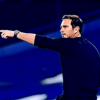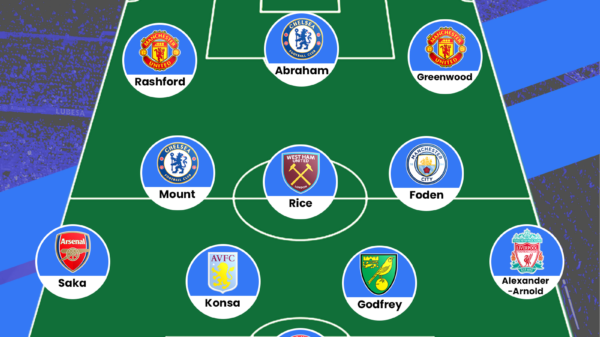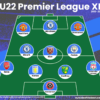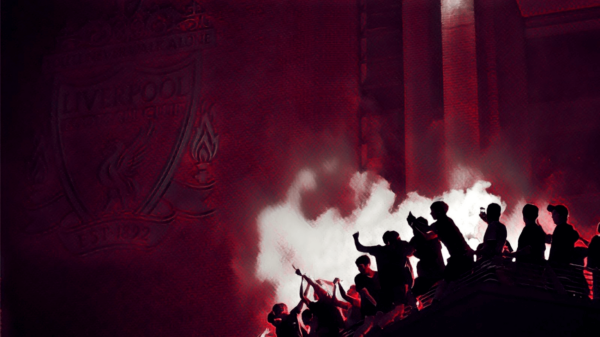It’s funny how football rivalries blur your judgment. I did not like Wayne Routledge. Actually, I hated Wayne Routledge. If you’d asked me 5 years ago for my views on Wayne Routledge, I would have probably used a lot of four letter words when delivering my opinion; unashamedly, I would not deny that my disdain for the winger was as much down to the fact he was playing for Cardiff City at the time, as well as my views on his general footballing ability. Perhaps my negative outlook on him had been conjured up thanks to a particularly mercurial performance for Cardiff against my beloved Swansea, a game in which Swansea’s Fede Bessone had to resort to a rugby tackle just to stop him. Despite one good season in the Premier League with Crystal Palace, I just could not see a Premier League footballer in Routledge, something I felt was proven by his uninspired stints at Tottenham, Aston Villa and on loan at Fulham. For me, he was a Championship player and undoubtedly a very good one at that level, as proven by his successful spells on loan at Cardiff City and QPR. Still, he was a player fit for the second tier of English football, nothing more, nothing less.
Routledge had always shown promise, but throughout his young career it was consistency where he was lacking. The pursuit for consistency was probably not helped by Routledge participating in a bit of ‘club- hopping’ with the winger playing for 8 clubs (2 stints at QPR) in 10 years. Many began to dub Routledge a ‘money-grabber’, a claim he has always vociferously denied, as he went from club to club supposedly seeking the best deal. I always felt that this was somewhat harsh as Routledge was usually loaned out by his parent clubs, or he would have to leave a club as he was chasing first team football (although admittedly, he had this at Cardiff and he still decided to reject a permanent move there in favour of a switch to QPR, a move maybe influenced by monetary circumstances). Routledge put in a number of excellent performances for QPR, so much so that Newcastle decided to sign him to help them with their promotion bid from the Championship.
Following promotion to the Premier League in 2011, Swansea manager Brendan Rodgers signed Routledge for £1.5m from Newcastle United. As a Swansea fan, I was not overly impressed, but I conceded that the former England U21 player could prove to a be decent squad player for the Swans in their maiden Premier League voyage. I would never have guessed that as his debut season at Swansea unfolded I would find myself screaming at Rodgers to start him over our previously prolific winger, Scott Sinclair, and in his second season find myself claiming that he has been our Player of the Season. In fact, I believe Routledge has been one of the most unheralded players in the whole league this season.
Routledge v Sinclair – Rodgers’ infuriating selections
Undoubtedly, Sinclair has to go down as a true Swansea hero – a hatrick in a playoff final at Wembley to take your club into the Premier League for the first time should be rightly celebrated. However, for me, Sinclair just never really did it in the Premier League, despite the perception that many still have that Sinclair was Swansea’s main man in their debut Premier League season.
Routledge made his debut for Swansea as a substitute in Swansea’s first game in the glitz and glamour of the Premier League, a 4-0 loss at the Etihad Stadium at the hands of the champions-to-be Manchester City. Rodgers introduced Routledge to the action in an attacking midfield role, a tactical move Rodgers would make on a couple of occasions in the nascent stages of Swansea’s 2011/12 Premier League campaign. It’s safe to say that Routledge, naturally a tricky winger, never looked comfortable in the playmaker role. If Routledge was to realistically grab a spot in the starting XI he would have to dislodge one of the Swans’ wingers: Swansea’s 2010/11 Player of the Season Nathan Dyer or their Wembley hatrick hero Sinclair. Dyer was excelling in the Premier League, but Sinclair was struggling for consistency and soon many Swansea fans were calling for Sinclair, who had scored 20 plus goals the season before in the Championship, to be dropped – myself included. I still loved Sinclair for his heroics and his efforts the season before, but his performances in the Premier League were lukewarm at best. I had also begun to be impressed with Routledge’s brief cameos from the bench. It was becoming evident that Routledge was a better option than Sinclair, but Rodgers persisted to choose his favourite pupil Sinclair.
The stats even support the fact that Routledge was a more potent attacking threat that season, despite not being as clinical in front of goal as Sinclair. Despite playing half as many minutes in the 2011/12 season as Sinclair, Routledge created as many goals as Sinclair (4 assists each), but he also created more chances for his minutes on the pitch (73 minutes per chance created compared to Sinclair’s 101 minutes). For me, it was no coincidence that Swansea’s best result and then best performance of the season coincided with Routledge’s inclusion in the team, as he took the place of the suspended Nathan Dyer for a couple of fixtures. In the 1-0 victory over Manchester City at the Liberty Stadium, Routledge caused chaos all game and created the winning goal for Luke Moore. One week later, Routledge played a key part in dismantling Fulham 3-0 at Craven Cottage alongside Joe Allen and Gylfi Sigurdsson. Routledge had played both games on the right side, up staging Scott Sinclair on the left on both occasions. Routledge was beginning to excel, but he was soon strangely dropped from the starting lineup again and Rodgers’ teacher’s pet Sinclair maintained his place. Swans fans had to endure more tepid and frustrating performances from Scotty.For Routledge’s Swansea career to (and arguably his Premier League career) to take off, one of two things had to happen: Sinclair had to move on or Rodgers had to. In the space of couple months, both would depart SA1 for supposedly more lucrative endeavours.
Routledge: the Laudrup Factor
Michael Laudrup was unveiled as the new Swansea manager, replacing Liverpool bound Brendan Rodgers, in June 2012 to surprisingly little fanfare in the national media. Laudrup praised the work of the former Swansea manager and said he’d be applying a similar philosophy to the previous regime, but with subtle changes. The Great Dane wanted to make Swansea a more direct threat and he promised to eradicate any unnecessary passing amongst the back four. He also talked in detail about how he no longer wanted Swansea’s wingers to hog the touchline and instead he demanded that they played more centrally, near the number 10 and behind the striker. This slight tactical tweak was to be the making of Routledge.
In the first league game of the Laudrup era, Routledge was deployed on the left side of an attacking midfield triumvirate with Nathan Dyer on the right side and new signing Michu playing behind striker Danny Graham. Routledge was superb and was at the heart of everything good Swansea did that afternoon, as the Swans waltzed to a 5-0 victory at a ground they famously always struggled at. Ostensibly, Routledge was playing on the left side of the attacking three, but he took joy in coming infield and causing havoc against his former club, as well as creating two of Swansea’s 5 goals. Many Swansea fans who departed Loftus Road that afternoon cited Routledge’s performance that day as the best of his Swansea career so far, but he had to go on to deliver performances of that caliber most weeks throughout the season.
With Sinclair departing for Manchester City (to apparently warm their bench) at the end of the Summer transfer window, Swansea signed the much lauded Pablo Hernandez from Valencia for a club record fee to supposedly directly replace Sinclair. Many Swansea fans assumed that Routledge would be the one making way in the starting XI for the classy Hernandez, but it was to be Dyer that would find himself confined to the bench as Routledge’s rip-roaring early season form made him immovable from the first team line up.
Since that glorious sunny day at Loftus Road, Routledge has just got better and better for me. His first touch is incredible and credits the quick passing football that has developed under Laudrup; his speed has proved hard to deal with for any defender in the league, his decision making has improved massively and he is now intelligent with the ball, holding the ball when necessary and taking on his man when relevant. He has even added goals to his arsenal of attacking tools with 5 goals already this season to go along with his three assists; a huge improvement for a player who went 116 Premier League appearances throughout his career, before scoring his first goal Premier League goal – the second goal in Swansea’s 2-0 win over Aston Villa at Villa Park in January 2012.
Routledge has spent the majority of this season out on the left side of the attacking trio behind the striker, but arguably Swansea have been at their most lethal when the three wingers, Routledge, Pablo and Dyer, have all started alongside each other in a formidable attacking unit behind Michu in the number 9 role. When all three play together the Swans are simply breathtaking. The first time Laudrup experimented playing Dyer, Pablo and Routledge together was in a November home fixture against a tough West Brom side; the first 45 minutes of football I witnessed on that Wednesday evening are the best 45 minutes of football I’ve ever seen a Swansea team produce and certainly the best I’ve seen any side produce this season. The football was jaw-droppingly good – this was thanks largely to the whirlwind of movement and passing from the attacking trio behind Michu. The Swans led 3-1 at half time (Lukaku scored from a corner with the last kick of the half to grab a WBA consolation) and Swansea looked to have taken their fast, passing game to a new level. Routledge scored two that evening and his performance was once again inspired. Laudrup, obviously no stranger to mercurial football having been part of Cruyff’s Barcelona ‘Dream Team’ in the 90s, said after the game:
“It was the best I have seen for several seasons. It is not often as a manager you can sit and enjoy your team playing.”
Routledge for England?
Is it it audacious to make such a suggestion? There was recent speculation that ‘Routs’ could earn a call up to Roy Hodgson’s recent England squad for the San Marino and Montenegro games, but it wasn’t to be. However, some have suggested that he could earn a call up for a more experimental squad for the upcoming May friendlies against Republic of Ireland at Wembley and Brazil at the recently renovated Maracana Stadium.
When compared with fellow English wingers who made the recent England squad, Routledge’s stats more than hold up to the supposed elite of English football and in certain areas the stats show that the Swansea winger is maybe a better option than some of his compatriots.
|
Player |
Goals/Assists |
Total Chances Created |
Successful Dribbles |
Crossing Accuracy |
Pass Completion |
|
Wayne Routledge |
5 / 3 |
38 |
23 |
29% |
81% |
|
James Milner
|
3 / 1 |
30 |
11 |
26% |
77% |
|
Ashley Young
|
0 / 3 |
25 |
8 |
23% |
84% |
|
Alex Oxlade Chamberlain |
1 / 2 |
14 |
25 |
11% |
80% |
|
Theo Walcott
|
11/ 9 |
29 |
38 |
15% |
84% |
With regards to goalscoring and assisting his team, Routledge is only bettered by Theo Walcott, although the goalscoring stats are always going to favour Walcott here as he has played as Arsenal’s main frontman on several occasions this season. However, Routledge comes out on top when looking at Total Chances Created with him making 38 chances for his team this season, as well as being a more accurate crosser than his fellow English wingers.
Routledge has looked deadly running at opponents throughout the season and you could argue that Routledge is only bettered by the two Arsenal wingers, Chamberlain and Walcott, because of their lung-busting turns of pace; although he is quick, Routledge cannot compete with either of those two for pace. Admittedly, the stats do not favour James Milner as much, as the chosen stats look more at the offensive side of the game; unsurprisingly, Milner fares better than the others when looking at more defensive traits – perhaps why Mancini and Hodgson are such big fans of him.
Unlike the wide players selected England’s current squad – Ashley Young, James Milner, Alex Oxlade-Chamberlain and Theo Walcott – Routledge is playing week in, week out and has been more consistent with his form than any of the previously mentioned players, who have had to deal with much more squad rotation. It should also be noted that Routledge is doing the business for a ‘smaller’ club, unlike the star-filled, multi-million pound assembled teams of Arsenal, Manchester United and City. Am I saying he’s a better player than the other English wingers mentioned? Maybe not, but he’s certainly doing much more to justify at least a spot in the squad than some of the others.
Unheralded
For me Wayne Routledge is the most unheralded player in the Premier League. I know he will not be mentioned in the same breath as Van Persie, Bale, Suarez or any player of that ilk, but still I have seen very little in terms of column inches praising his efforts this season, apart from the odd, fleeting “he’s doing well this season” comment. I’ve even heard many still speak in a disparaging tone about a player they believe still has not fulfilled his potential. These people have clearly not seen Routledge’s displays for Swansea this season and are still lazily forming their opinions based on his years as the perpetually transferred footballer.
Much has been made of Michu this season (cue obligatory ‘bargain of the season’ mention) and he has undoubtedly been brilliant. However, if you were to ask me right now who has been Swansea’s best player this season, I would still say Routledge, closely followed by the club’s two centre backs Ashley Williams and Chico Flores.
Along with Michu, Williams, Rangel and manager Michael Laudrup, Routledge has signed a new contract this season and he can maybe now develop further with consistency and stability now implemented into his career. At 28-years old you would like to believe that Routledge is just hitting his peak.
Rouledge for England? Why not?
All stats were taken from the EPL Index and are up-to-date until 30th March 2013.
- Sorry, Chris: An Apology to Coleman - June 16, 2015
- 20 years on: Colombia’s original golden generation & subsequent Escobar tragedy - July 3, 2014
- World Cup Golden Boot: A Bony-fide Goalscorer - June 11, 2014





















































![[Photo: caughtoffside.com]](https://outsideoftheboot.com/wp-content/uploads/2013/03/routledge-sinclair.jpg)






